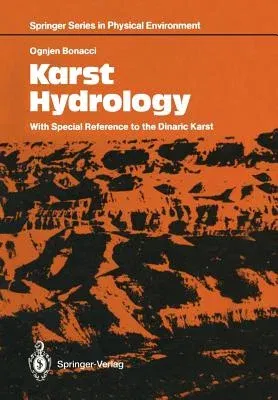Ognjen Bonacci
(Author)Karst Hydrology: With Special Reference to the Dinaric Karst (Softcover Reprint of the Original 1st 1987)Paperback - Softcover Reprint of the Original 1st 1987, 15 December 2011

Qty
1
Turbo
Ships in 2 - 3 days
In Stock
Free Delivery
Cash on Delivery
15 Days
Free Returns
Secure Checkout
Part of Series
Springer Physical Environment
Part of Series
Springer Series in Physical Environment
Print Length
184 pages
Language
English
Publisher
Springer
Date Published
15 Dec 2011
ISBN-10
3642831672
ISBN-13
9783642831676
Description
Product Details
Author:
Book Edition:
Softcover Reprint of the Original 1st 1987
Book Format:
Paperback
Country of Origin:
NL
Date Published:
15 December 2011
Dimensions:
24.41 x
16.99 x
1.07 cm
ISBN-10:
3642831672
ISBN-13:
9783642831676
Language:
English
Location:
Berlin, Heidelberg
Pages:
184
Publisher:
Weight:
326.59 gm

